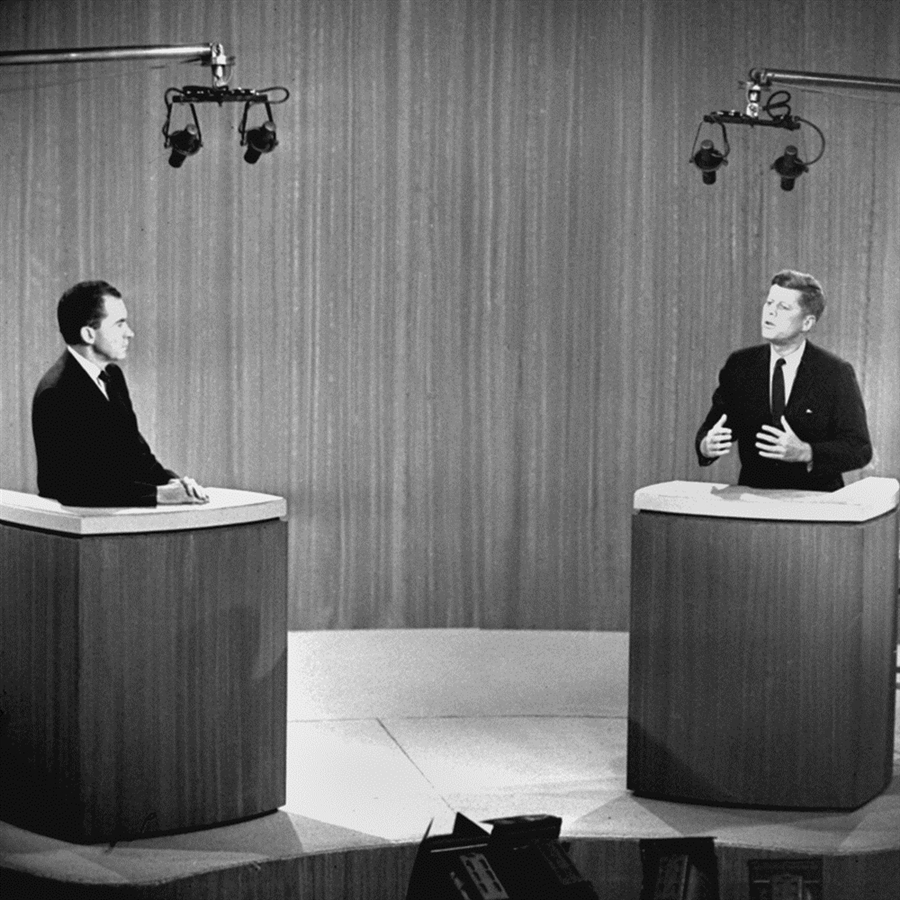
It’s a wonder there aren’t more campaign and Election Day-themed films out there. Sure, there’s more than a few, but considering just how intense and exciting a run for office can be, how punch-drunk and emotionally exhausted the polls can leave both the winning and losing candidates, you’d think there’d be a new Election Day movie every other week.
After all, elections are in many ways as competitive and thrilling as sports, and you can’t throw a rock without hitting a new underdog athletic-themed movie. Of course, watching an actual game live on TV is more exciting than any fictionalized counterpart—playoffs and championship series consistently dominate television ratings for a reason. Likewise, the drama and personal turmoil of a real life election can be far more compelling than the best scripted election spectacle. The stakes are high and unlike almost any other story out there, they personally affect each and every one of us. The characters are flesh and blood, and yet by their nature larger than life.
When a documentary is done well, it shows us the world in a meaningful, striking way that reaches the deepest parts of us. Election Day documentaries are no exception, and with the black-and-white conflict that its entire narrative is spun around, it could be argued that it’s storytelling in its purest form. The following are just a few Election Day documentaries that will glue you to your seats, utterly fascinating looks into a world that only makes the news every November or so, but impacts our lives on a daily basis. There should be a lot more, but for some strange reason, there aren’t. These films are part of a niche that should be its own genre, up there with sports and war docs, and are all stories that needed to be told. It makes you wonder what stories didn’t get a chance to be caught on camera.
1. The War Room
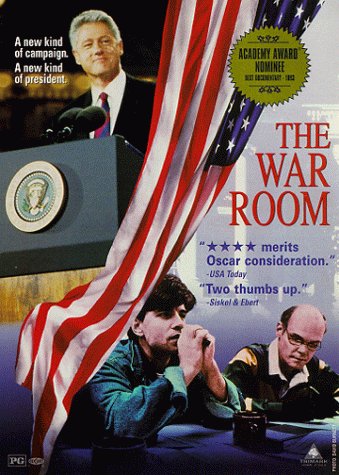
1993 documentary The War Room follows Bill Clinton’s campaign as he evolves from a potential dark horse to clear presidential frontrunner. While Clinton and his first major sex scandal are big portions of the story, the film focuses mainly on the team trying to get Clinton elected, led by the beguiling James Carville and understated wunderkind George Stephanopoulos.
The intimate look at a run for the nation’s highest post reveals the friendly ambiance of an office when things are looking good, and the hostile, fractious mood that same team can take when things are going south. In addition, we see the day-to-day workings of spin and crisis management, the rapid-fire responses Clinton and his team must make to every new turn of events that unfold throughout the election.
An Academy Award nominee, War Room is considered one of the gold standards of any campaign documentary, and is an absolute must-see for Democrats and Republicans alike.
2. Horns and Halos
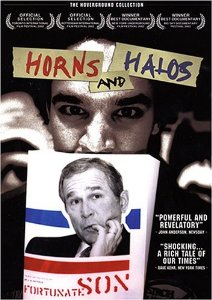
Horns and Halos takes place in the same context of a presidential election, but rather than focus on the main players themselves, the film uses George W. Bush’s 2000 run for office as a backdrop to the more personal story of a troubled biography author and the idiosyncratic independent publisher releasing his book.
James Hatfield wrote Fortunate Son, a scathing biography that alleged George W. Bush built his successful career using the wealth and power of his father and family and, more tendentiously, claimed Bush used cocaine in the 1970s. The documentary crew followed Hatfield and Sander Hicks, the young New York publisher who kept the book on the shelves while the Bush family placed immense pressure on the author to recant the claims. Hatfield’s criminal past soon came to light, believed by the author to be a tactic of the Bush campaign to discredit him. During filming, Hatfield was found dead of an apparent suicide, though Hicks and others believe it was a murder and cover-up.
Like many election stories, the facts are murky and end results downright depressing, and the film reveals dark machinations in politics that are hard to watch and even harder to accept. Horns and Halos lives in the shades of grey that make for absolutely fascinating documentaries.
3. Frontrunners
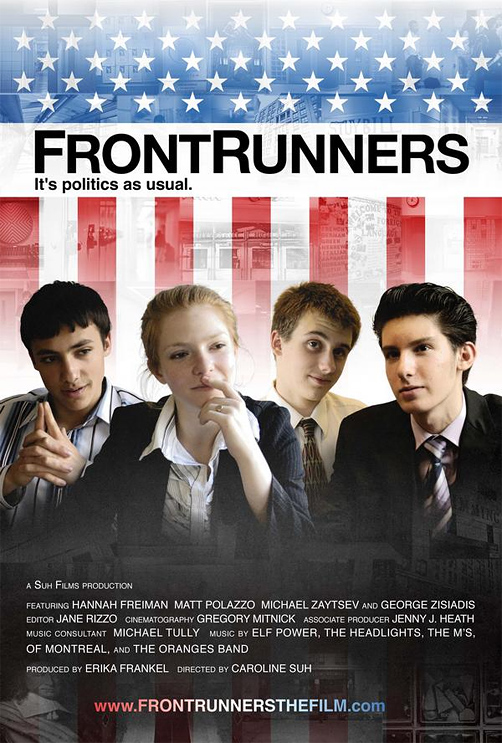
Not all great election documentaries have to be about high office. Frontrunners is about an extremely localized race—the campaign to be Class President at Stuyvesant High School. The New York school is famous for its elite, brilliant students that are consistently held to the highest standards. Their elections are no different, following the rules and structure of the most professional government races, including primaries, debates, and the subtleties of vetting running mates.
What sets Frontrunners apart from its peers is that these teenagers can’t put their lives on hold like adult politicians. They still have to do their homework, be in bed by curfew, and study like hell to get into a good college. This added stress, along with all the over-the-top emotion and angst of being a teenager, creates a sharp, dramatic, and hilarious version of the typical election story and holds a fun house mirror to the grown-up races that dominate the news.
4. An Unreasonable Man
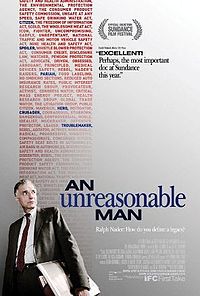
An Unreasonable Man isn’t strictly a campaign documentary but rather a biographical look at Ralph Nader, social and consumer advocate and infamous third-party also-ran. While the first half of the film is more concerned with Nader’s career mandating seat belts and such, a good deal of the documentary shows how Nader revolutionized modern grassroots politics and put together a campaign that placed morals above everything else.
While the documentary is clearly biased and pro-Nader, it’s a fascinating angle from which to watch the 2000 and 2004 presidential elections. By nature of its subject, it asks questions many election docs don’t, including where the line is drawn between doing the right thing and making compromises for the greater good. One of the film’s most fascinating scenes involves left-wing luminaries Michael Moore and Bill Maher—former Nader supporters—on their knees publicly begging Nader to pull himself out of the 2004 election, lest he siphon votes from the Democrats and help Bush win another tight race.
Nader tells the camera that he does not regret running, even if it may have cost Al Gore the 2000 election and permanently changed the political landscape of the nation. An Unreasonable Man is about just that, and is the rare Election Day documentary that asks Why? rather than How?
5. Street Fight
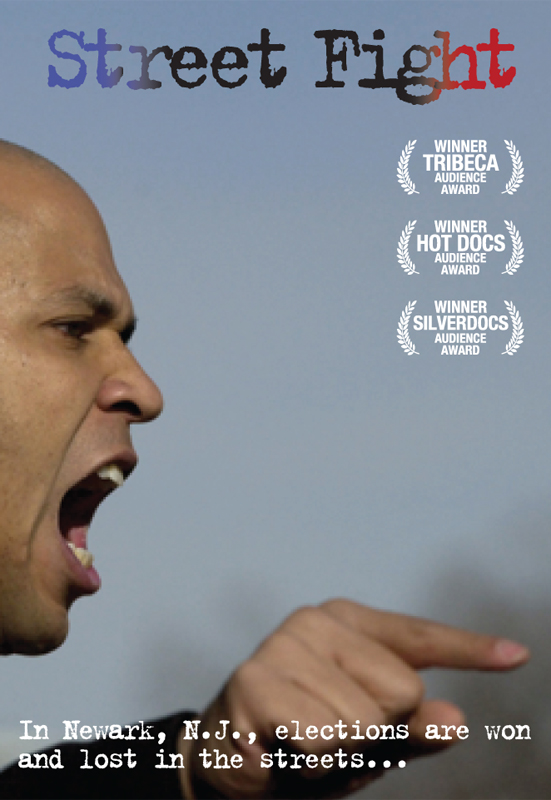
Street Fight, the 2002 documentary chronicling the race for Newark’s mayor, is a lot of things. For one, it’s a classic underdog story, following young greenhorn Councilman Cory Booker’s campaign to unseat political stalwart Sharpe James, a true David vs. Goliath tale.
It’s also the story of a city—Newark, New Jersey—a community that is a stone’s throw from the cultural and commercial capital of the world yet is practically invisible in its shadow. Unlike national campaign stories, Street Fight is a documentary that can make its more specific location its own character, and showcases Newark and its people from the ground up.
Cory Booker ended up losing the documented race, but later became mayor in 2006 and Senator in 2013. As his political career continues to soar, it’s clear that Street Fight may have been the first time the world outside of Newark got to see Cory Booker, but it certainly wasn’t the last.
Honorable Mention: Tanner ’88
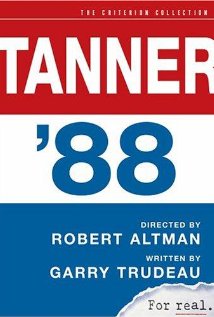
Tanner ’88 isn’t an Election Day documentary, it’s a mockumentary, and while that’s pretty much cheating, it still holds many of the same merits of it’s more truthful peers. It helps that it’s helmed by some of the strongest storytellers the late 80s had to offer—Robert Altman and Doonesbury creator Garry Trudeau. Between Trudeau’s cutting, insightful take on politics and Altman’s way with camerawork and dialogue, Tanner ’88 isn’t just a great mockumentary—it’s a great film.
Of course, fictionalizing the campaign helps in many ways, utilizing great actors to say exactly what needs to be said and capturing candid moments that would be hard for real life cameras to pull off. If anything, it’s a great supplement to Election Day documentaries, filling in the blanks actual flesh-and-blood politicians have gotten so good at keeping obscure. At the same time, it highlights just exactly why we need to keep our cameras trained on the people running or trying to run our country, and exactly why we need smart, talented filmmakers telling the stories these cameras can find.

